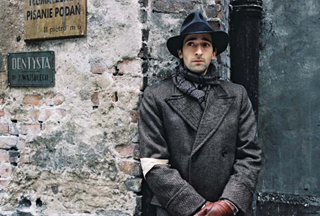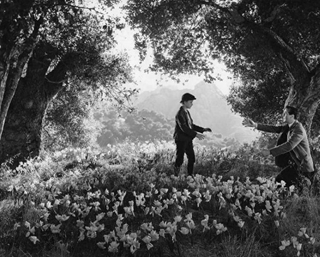The Oscars (aka Academy Awards) is the biggest night on the movie calendar. Winning an Oscar has always been the maximum achievement for actors, directors and studios in Hollywood. Some say just being nominated is enough, but we all know that’s not the case. Everyone wants to go up to the podium, put their sweaty hands on that statue and thank their mother and God and their agent. Even if we don’t agree with the win, we feel winning that Oscar deserves maybe a second look at a picture or performance. Over the years there have been a string of wins that have raised some eyebrows and, for some, questioned the Academy itself.
Here are 10 controversial Oscar winning films.
10. Hustle and Flow (2006)
Up against Dolly Parton’s country song for Transamerica and a haunting ballad from Crash, many people were stunned that “It’s Hard Out Here for a Pimp” from the film Hustle and Flow was chosen as Best Original Song at the 2006 Academy Awards. Penned and performed by the hip-hop group Three 6 Mafia, it’s Oscar win caused a fair amount of debate within the African-American community since some felt that it glorified a negative portrayal of young, African-American males as pimps and criminals.
9. My Cousin Vinny (1992)
Jaws definitely hit the floor when it was announced that Marisa Tomei was voted as 1992′s Best Supporting Actress for her role as Mona Lisa Vito, the gum-snacking, wisecracking girlfriend of the title character in My Cousin Vinny. Considering that she was up against such highly distinguished actresses as Joan Plowright,
Vanessa Redgrave, Judy Davis and Miranda Richardson, it seemed as though Academy voters had experienced a momentary lapse of judgment in picking Tomei over these much worthier competitors. In fact, Tomei’s win was so shocking that it created a maelstrom of controversy that presenter Jack Palance had misread the actual recipient. But two Oscar nominations later, everyone now knows that was most certainly not the case.
8. The Pianist (2002)
No one can deny that The Pianist was a great film, but this didn’t prevent it from generating a whirlwind of controversy at the 2002 Academy Awards. Up against Jack Nicholson, Daniel Day Lewis, Nicolas Cage and Michael Caine, Adrien Brody shocked the audience with his Best Actor win. (He also shocked presenter Halle Berry, upon whom he planted a big, wet kiss.)
On top of star Adrien Brody’s surprise win, The Pianist caused even greater controversy when Roman Polanski was named recipient of the Best Director Oscar. Yes, Polanski is one of the legendary directors in film history, but many thought the only thing the convicted rapist deserved was a jar of mint jelly. Why? –Because he was still (at the time) on the lam. Not to mention, Chicago’s Rob Marshall had already won the Director’ Guild of America prize that year.
7. Crash (2004)
Race relations for dummies. That’s how many people viewed Paul Haggis’ film that interweaves several stories spanning two days in Los Angeles involving a collection of interrelated characters. Still, the film snatched the Oscar for Best Picture away from favorite Brokeback Mountain thanks to an aggressive campaign. And if that weren’t enough, Crash also generated a great deal of behind-the-scenes drama concerning the number of producers eligible for a nomination/win.
6. Kramer Vs Kramer (1979)
Over the years, several actors have taken home an Oscar even though they are hardly in the film—the most notable being Anthony Hopkins’ Best Actor win for his portrayal of Hannibal Lecter in Silence of the Lambs. Hopkins is actually only onscreen for a total of 16 minutes, but hey, he’s Hannibal the cannibal—a character so chilling that in 2003, the American Film Institute named him the #1 movie villain of all time.
In stark contrast to Anthony Hopkins’ win, it must be pointed out that there was some seriously suspect voting when Meryl Streep won a Best Supporting Actress award in 1979 for Kramer Vs Kramer. Now, as good an actress as Streep is, let’s face it, she is barely seen in Kramer Vs Kramer. The win begs the question whether there should be a screentime minimum to be eligible. Then again, it’s Meryl Streep.
5. Shakespeare in Love (1998)
Shakespeare in Love left many critics shaking their heads after the 1998 Academy Awards. For starters, how did Shakespeare in Love manage to take home the Oscar for Best Picture over two classic movies of the war film genre—The Thin Red Line and Saving Private Ryan? The latter deserved the Oscar solely for it’s opening sequence. In fact, so sure was everyone that Steven Spielberg’s Saving Private Ryan would take home the Best Picture award that Indiana Jones himself, Harrison Ford, was the Best Picture presenter.
Furthermore, what was the Academy smoking when they awarded Gwyneth Paltrow the Best Actress Oscar for her role in Shakespeare in Love? Sure, she’s so hot it actually hurts, but that little golden statue could have turned in a better performance.
4. Titanic (1997)
Titanic dominated the 1997 Academy Awards, but was it really deserving of eleven Oscars? Many critics think not. In the Best Picture category, it beat off competition from As Good As It Gets, The Full Monty, Good Will Hunting and the epic noir, L.A. Confidential. Years later, the Academy would increase their support of less arthouse/more commercial films in the hopes of bringing more viewers to the telecast – carrying on the debate of what it really means to be “Best Picture.”
3. Butterfield 8 (1960)
People still argue over the 1960 Best Actress Oscar nod given to Elizabeth Taylor, as call girl Gloria Wamdrous in Butterfield 8. Taylor herself disliked playing the role, but contractual obligations dictated that she take the part. Furthermore, there was no chemistry visible between Liz and her leading man, actor Laurence Harvey, and critics say that her role was way too “high camp” to be taken seriously. Whatever your take is on this film, you still have to admit that Elizabeth Taylor holds your attention… but an Oscar? Still, she wouldn’t be the last woman to use sex to make it to Oscar night.
2. The Greatest Show on Earth (1952)
Cecil B. DeMille’s The Greatest Show on Earth may have been epic in scope and highly popular with audiences, but there are those who continue to sniff their noses at its 1952 Best Picture win. They believe it hardly measures up artistically to the films it was up against – The Quiet Man, High Noon, Moulin Rouge and Ivanhoe. Many attacked DeMille’s movies for being excessive and overly sentimental; but that has never deterred fans from watching and enjoying them. it obviously did not bother those Academy voters who picked it as a winner either.
1. How Green Was My Valley (1941)
While no one can deny that John Ford’s How Green Was My Valley was an outstanding motion picture, many still object to the fact that it won the Best Picture Oscar in 1941 – over Orson Welles’s masterpiece Citizen Kane. It is widely believed that since Citizen Kane was loosely based on William Randolph Hearst and his mistress Marion Davies, the furious media magnate pressured Hollywood into rejecting the film as the Best Picture winner. At that time, Hearst’s newspaper employed influential gossip columnist Louella Parsons, who could quite literally make or break stars’ careers. Nobody wanted to risk angering Hearst further by voting for a movie he obviously disapproved of, no matter how worthy it was. Success, as they say, is the ultimate revenge and, despite W.R.H.’s efforts to obliterate its memory, Citizen Kane is now judged by many as the greatest movie ever made.











No comments:
Post a Comment